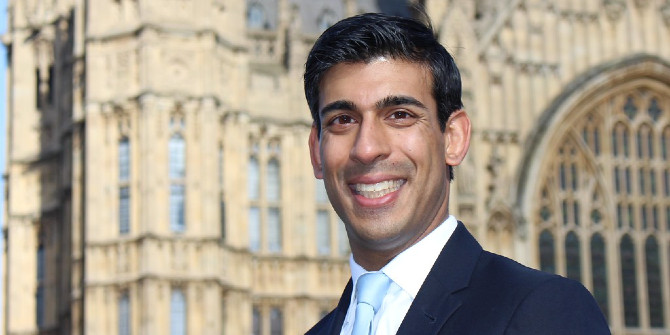
 Yesterday, the Social Mobility and Child Poverty Commission released a report which finds that working-class applicants are at a disadvantage and recruiters use ‘poshness tests’. Here, Daniel Laurison and Sam Friedman discuss the report and their own research which fed into the study and call for further research which explores the ‘class ceiling’.
Yesterday, the Social Mobility and Child Poverty Commission released a report which finds that working-class applicants are at a disadvantage and recruiters use ‘poshness tests’. Here, Daniel Laurison and Sam Friedman discuss the report and their own research which fed into the study and call for further research which explores the ‘class ceiling’.
The Social Mobility and Child Poverty Commission yesterday released an important and illuminating report on the ways people from working-class backgrounds are disadvantaged in elite occupations. This is a great step towards exposing and understanding how class is reproduced: the children of the privileged are the most likely to end up in high-paying, high-status, and high-powered positions, whereas the children of the disadvantaged are likely to face powerful barriers.
The research draws on our working paper to frame the issue of a ‘class ceiling‘ that makes it especially difficult for people from working-class origins to achieve the highest levels of success in many elite occupations. The report reveals a number of employer practices that, intentionally or not, work against people whose parents were not professionals or managers. Top firms’ recruiting and hiring processes tend to exclude people whose parents could not provide them with private schooling, who did not attend Russell Group universities, or who lack other (highly classed) attributes recruiters associate with “talent”, such as having the “right” accent or having travelled widely. These have been aptly termed “poshness tests” in the media coverage.
These findings suggest that motivated, smart graduates with training in these fields, but without the resources of their more privileged peers, are likely to end up in smaller and less-prestigious firms. This may be one mechanism generating the substantial pay gaps we identified between otherwise-similar people with different class origins (also shown in a paper we wrote with Andrew Miles, published Friday). This kind of qualitative research is essential to understanding and hopefully beginning to intervene in the processes that reproduce relative disadvantage.
There is also still much more research to be done on these issues. The Commission report focused on only three sectors (accountancy, law, and finance) while our work shows pay gaps by class origin in many more elite, professional and managerial occupations, including IT, academia, and media, and medicine. And while differences in the chances of being hired into elite firms clearly explain part of the ‘class ceiling’ pay gap, many other factors also need to be investigated, such as class differences in where people specialise within occupations, or in who gets promoted within firms. We see this report as an essential piece of research for understanding these processes, and we look forward to drawing on it in our own future work.
Note: This article gives the views of the authors, and not the position of the British Politics and Policy blog, nor of the London School of Economics. Please read our comments policy before posting.
 Daniel Laurison is as a Post-Doctoral Fellow in the Sociology Department at the LSE.
Daniel Laurison is as a Post-Doctoral Fellow in the Sociology Department at the LSE.
 Sam Friedman is Assistant Professor in Sociology at LSE. He tweets from @SamFriedmanSoc.
Sam Friedman is Assistant Professor in Sociology at LSE. He tweets from @SamFriedmanSoc.







